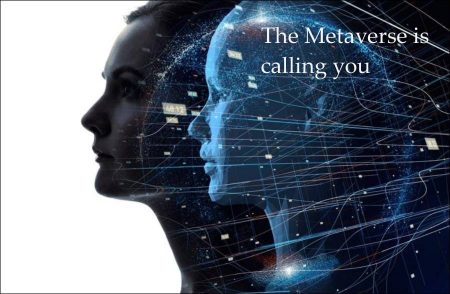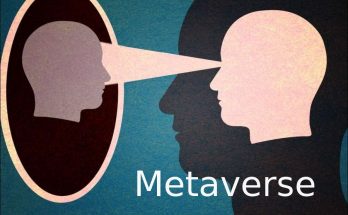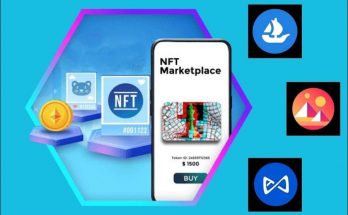Metaverse is a collaborative virtual shared space created by the convergence of virtually enhanced physical reality and physically persistent virtual space, including all virtual worlds, augmented reality, and the Internet. synthetic environment
The word “metaverse” consists of the prefix “meta” (meaning beyond) and the root “verse” (a back-formation from “universe”); The term is typically used to describe the concept of a future iteration of the internet consisting of persistent, shared, 3D sandboxes connected to a perceived virtual universe.
The term metaverse originated in Neal Stephenson’s 1992 science fiction novel Snow Crash, in which people as avatars interact with each other and with software agents in a three-dimensional virtual space using the metaphor of the real world. Stephenson used this term to describe the virtual reality-based successor to the Internet. Concepts similar to the Metaverse appeared under various names in the cyberpunk fiction genre in the 1981 novel True Names. In the afterword to Snow Crash, Stephenson stated that he learned about Habitat, an early Metaverse-like MMORPG after finishing the novel.
virtual environment; It is a synthetic environment made up of virtual spaces containing objects, inhabitants, and their relationships existing at a virtually defined time. A Virtual environment may also provide a platform for “Serious Games”, “Simulations” or “Video Games”. Virtual Worlds are designed for their users to live and interact with, and today the term has become largely synonymous with interactive 3D virtual environments where users take the form of avatars that are graphically visible to others.
Facebook CEO Mark Zuckerberg recently announced that the tech giant will move from being a social media company to a “metaverse company” operating within a “embodied internet” that blends the real and virtual worlds more than ever before. Given that nearly three billion people use Facebook each month, Zuckerberg’s suggestion of a change of direction is somewhat noteworthy.
Humans have developed many technologies to fool our senses, from speakers and televisions to interactive video games and virtual reality, and in the future we may develop tools to fool our other senses such as touch and smell. We have many words for these technologies, but yet there is no popular word to refer to the whole mix of old-fashioned reality (the physical world) and our fabricated extensions of reality (the virtual world).
Words like “Internet” and “cyberspace” have become associated with the places we access through screens. They don’t quite capture the constant entanglement of the Internet with virtual realities (like 3D game worlds or virtual cities) and augmented reality (like navigation overlays or Pokémon GO). More importantly, the old names fail to capture the new social relationships, sensory experiences and economic behaviors that come with these extensions of the virtual.
Facebook and other big companies are determined to embrace the “next big thing” before their competitors. Metaverse is exciting because it presents an opportunity for new markets, new types of social networks, new consumer electronics, and new patents. What’s not so clear is why you or I would be excited about all this.
In the ordinary world, most of us grapple with things like a pandemic, climate emergency, and mass extinction of human-made species. We struggle to understand what the good life looks like with the technology we have already embraced.
So why get excited about tech companies investing untold billions of dollars in new ways to distract us from the everyday world that gives us air to breathe, food to eat and water to drink?
Next Page: What will happen when Metaverse becomes fully operational?
Hits: 54



